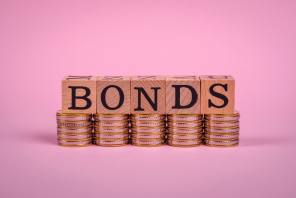
Article 4 / 5
Guide to fixed income and responsible investingAchieving diversification in a responsible investment portfolio

This is because many of the companies which would screen positively for a sustainable investment fund are those which are at a relatively early stage of their development, and while some of them will be growing rapidly, such equities will generally fit into the growth style of investing, creating the risk that client portfolios are overly exposed to one style of investing.
In the fixed income universe there are two challenges; the first is that many clients may not feel comfortable owning the bonds of governments, or at least certain developed market governments, as those tend to have armies.
As government bonds are a traditional way to dampen the volatility from equities, a scenario where one cannot own government bonds means the traditional rules of asset allocation are upended.
The second challenge within the fixed income space is that many companies that would have the highest credit rating are those which generate lots of cash and so have no need to issue debt, while companies that would pass a sustainability screen may require lots of debt as they are in the early stages of growing their businesses.
Bond selection
Tom Sparke, investment manager at GDIM, says: “This is a difficult area for a number of reasons. The government bond market that is an essential part of a bond portfolio is rated at both the highest and lowest ends of the ESG scale by different platforms, as the actions of those governments whose bonds are used differ greatly.
"Trading in arms, varying degrees of inequality, personal conduct and many other factors can be looked at negatively when scrutinised. A second consideration is which to buy – are UK bonds better or worse than US ones from an ethical point of view? What about Chinese bonds? All of these factors are subjective and a framework for including or excluding them is difficult to ascertain.”
He adds: "There are a huge number of investment-grade funds in this space but very few high-yield ones. The underserved nature of this space could lead to a smaller pool to pick from. We use sovereign bonds from the UK, US and Europe in our ESG-focused portfolios, but do not use those from China, as ongoing human rights violations continue. We also use a handful of investment-grade funds and some with wider powers to include some element of high yield too.”
Genevra Banszky von Ambroz, portfolio manager at Tilney, finds that in the corporate bond space her preference is to use bonds with a short date to maturity as there is a greater level of certainty around the company's prospects and also policies..
Dealing with risk
In terms of how to deal with the risks of being overly exposed to the growth style of investing, she says: "There are some value funds out there which have a sustainable approach, there aren’t many but I think we found some; it's the same on the bond side, we use three bond funds, but we were delighted to find them, it took a lot of looking to find them."
One thing investors should not do, according to Neil Birrell, chief investment officer at Premier Miton, is sharply alter their usual asset allocation decisions in order to accommodate their sustainability criteria, saying he feels this is not necessary.
He says: “Investing in a sustainable business does not inherently increase financial risk; indeed, proponents of the strategy will argue that over the long term, it can reduce risk and enhance potential returns. There are many factors that drive risk and return of share prices, sustainability is only one of them.
"Nonetheless, building a portfolio like this does mean that it is less diversified and in certain market conditions that can have a detrimental effect. However, if staying solely with equities, you can diversify by geography, sector and market capitalisation and more particularly by sustainable themes such as circular economy, financial inclusion or health and wellbeing, among others. These are exposed to different short and long-term influences."
This is a view echoed by Simon King, chief investment officer at Vermeer Partners, who says: “We try to think about portfolio construction in exactly the same way for any client. We incorporate ESG considerations at the stock selection level. At the asset allocation level it is about trying to find other investments to replicate the areas that ESG considerations prevent us from investing in, for example the income and low cyclicality of tobaccos or the diversification benefits of oil and mining etc.
"The temptation is to replace the income with high-yield fixed income or high-yielding rubbish, both of which we try to avoid. Where allowed we look to find other areas that may benefit from the possible success of the areas we are precluded from, eg oil and mining services as a proxy for primary producers.
"We are very wary of the ESG darling stocks, which until recently had commanded unsustainably high valuations."
The topic of meme stocks is one which preoccupies Deirdre Cooper, co-head of thematic equity at Ninety One, who says an approach based on ESG ratings as provided by external agencies is one that can lead to an over exposure to just one factor, but this is less the case if one invests in companies that look at a broader range of considerations than just climate risk, for example.
Cooper adds: "The key risk is that people do not pay attention to all the stakeholders, but that is where transparency comes into it. It’s important that as investors we provide clarity on all aspects of what the companies we invest in are doing.”
david.thorpe@ft.com





